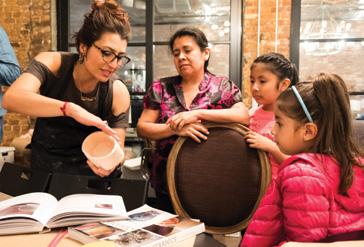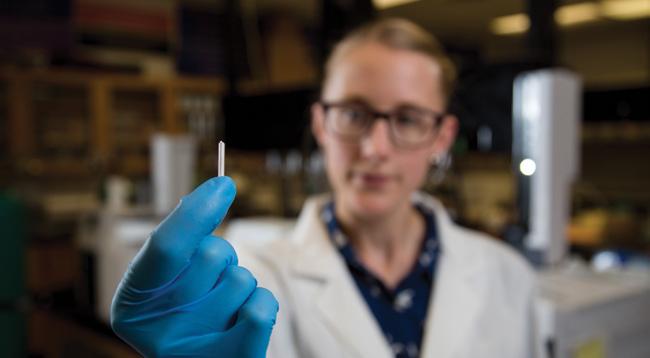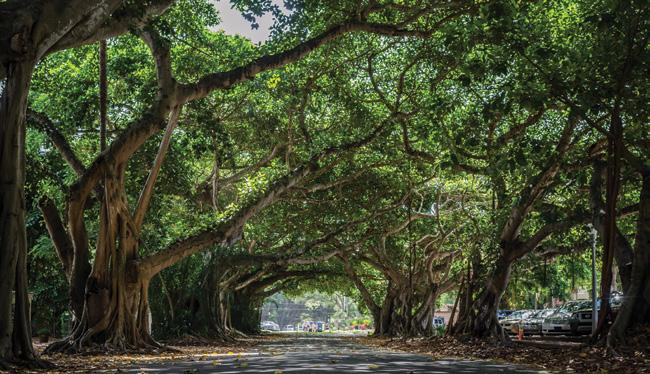Alumna Carolina Rubio-MacWright has found unique ways to educate immigrants about their rights
T
he first thing one notices about the art studio is how open and sun-filled it is, with floor-to-ceiling windows allowing the light to fall over shelves
of ceramic works in progress. In the central workspace, women of all ages bend over tables, focused but happily chatting as they fashion clay into pinch pots, figurines and religious crosses. That openness has a downside, however, as Carolina Rubio-MacWright ’03 has concluded. “There have been eight ICE raids in the community in the last three weeks alone,” says the immigration lawyer and artist who organizes pottery workshops for undocumented immigrants in Brooklyn, New York. “It’s occurred to me that these classes could eventually be targeted.”
An immigrant herself Rubio-MacWright was 19 when she fled her native Colombia in 2001 for South Florida. At the time, the country was in the midst of a decades-long civil war that would end years later with more than 200,000 dead, some 25,000 disappeared and 5.7 million displaced. “I had to leave because my personal safety was at risk,” says the alumna, who felt her outspokenness put her in particular danger. “In Colombia, there was always a feeling of imminent threat. I didn’t feel free to be curious, make eye contact or take the same bus route too often. My actions were fueled by fear.” A fine arts major at FIU, Rubio-MacWright created art informed by that conflict. Her piece “How Much is Enough?” won her a student award and attention from local media. For that work, she cut a section from her hair and attached 13 feet of paper printed with the images of Colombian kidnapping victims. “I wanted to convey the feeling of weight, that I should be helping these people but I’ve let them down,” explains Rubio-MacWright, who says she was still processing the guilt of leaving her homeland while others remained in danger. Continues FALL 2019 | 13






